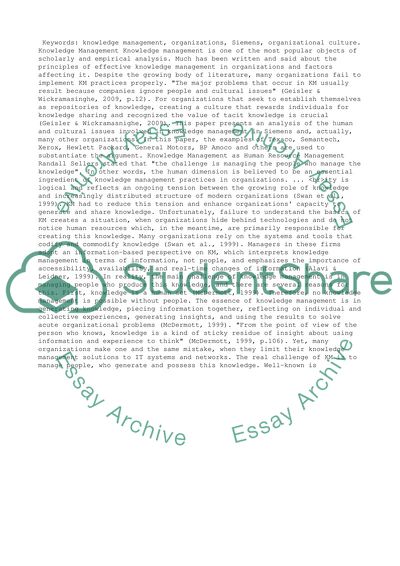Cite this document
(“Knowledge Management Essay Example | Topics and Well Written Essays - 2500 words - 1”, n.d.)
Retrieved de https://studentshare.org/management/1392449-knowledge-management
Retrieved de https://studentshare.org/management/1392449-knowledge-management
(Knowledge Management Essay Example | Topics and Well Written Essays - 2500 Words - 1)
https://studentshare.org/management/1392449-knowledge-management.
https://studentshare.org/management/1392449-knowledge-management.
“Knowledge Management Essay Example | Topics and Well Written Essays - 2500 Words - 1”, n.d. https://studentshare.org/management/1392449-knowledge-management.


